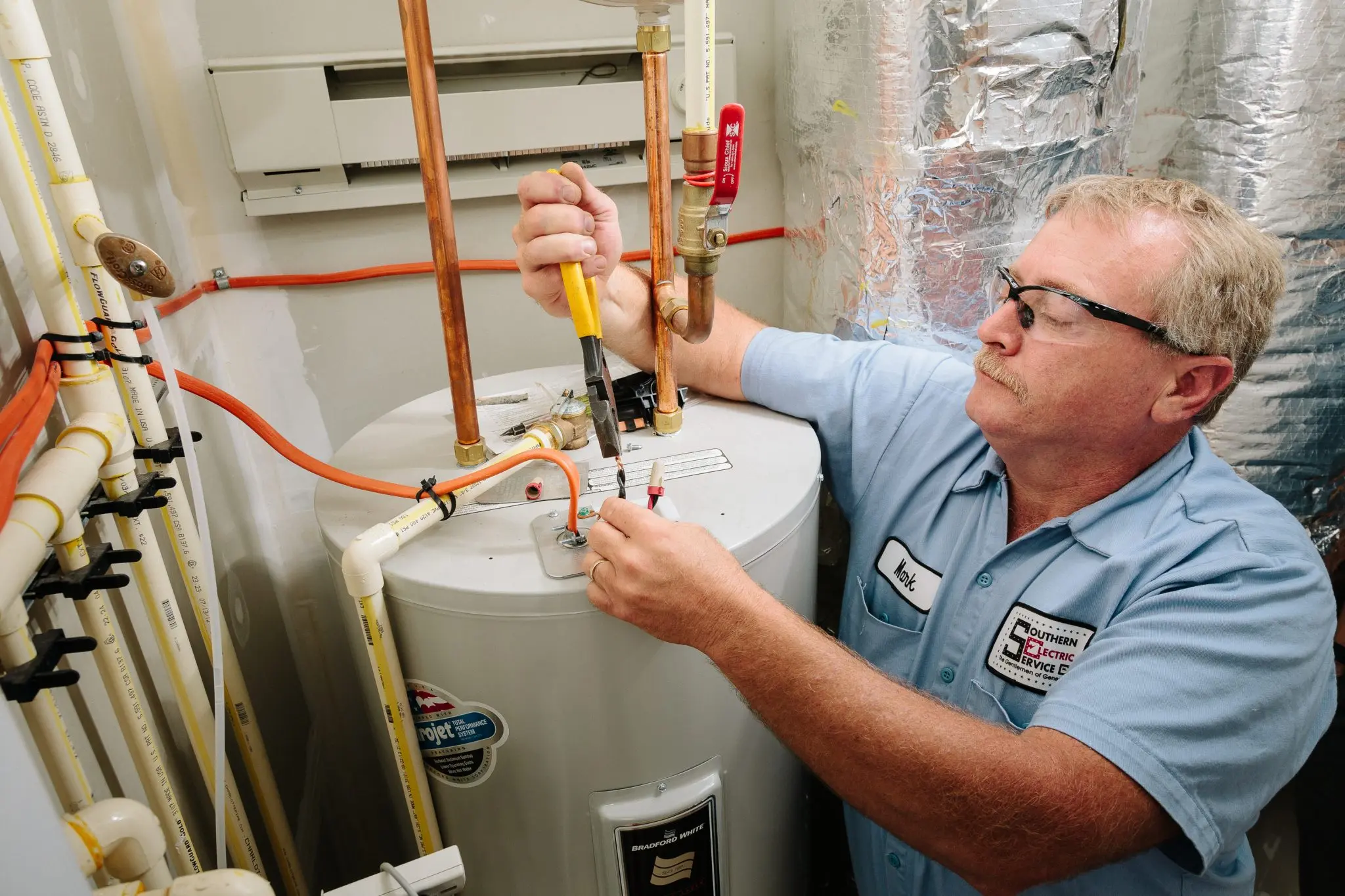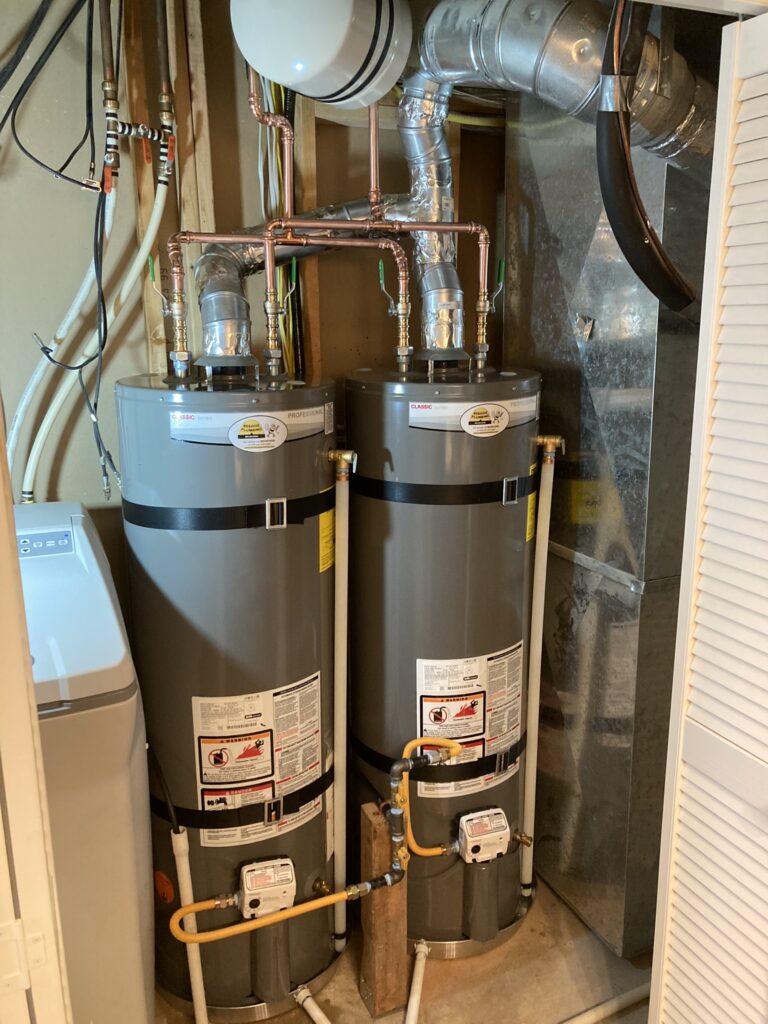Affordable Drain Cleaning Services to Remove Blockages and Unpleasant Smells
Affordable Drain Cleaning Services to Remove Blockages and Unpleasant Smells
Blog Article
Total Guide to Water HeaterSetup and Substitute
Recognizing the details of hot water heater installment and replacement is vital for homeowners looking for to make sure efficiency and integrity in their warm water supply. From selecting the appropriate kind and dimension to performing a seamless installment process, a number of elements should be considered to avoid typical pitfalls. This guide will offer you with the needed steps and insights to navigate the complexities of this home enhancement task, while additionally highlighting vital maintenance methods that can extend the life of your system. As you explore these aspects, you may find yourself reassessing your existing arrangement and determining areas for renovation.
Kinds Of Water Heaters
When considering hot water heater installment and replacement, it is vital to recognize the different types of water heating units available out there. One of the most common kinds include tank hot water heater, tankless hot water heater, warm pump hot water heater, and solar water heating units.
Storage tank water heating units are conventional systems that store a particular volume of warm water, making them readily offered when needed. In comparison, tankless water heaters offer hot water on need, removing the need for storage space.
Warm pump hot water heater use electrical power to move warmth from the air or ground to heat water, offering considerable power savings but requiring even more space and specific installment conditions. Solar water heating units harness solar power to warmth water, supplying an eco-friendly alternative with prospective lasting expense financial savings, although they usually need a back-up system for over cast days.
Recognizing these alternatives ensures informed decisions pertaining to setup and substitute, satisfying details requirements and choices.
Choosing the Right Size
Choosing the proper size for a hot water heater is essential to ensure optimum performance and efficiency. A system that is as well small will certainly struggle to meet family needs, bring about irregular warm water availability and raised energy usage. On the other hand, an oversized water heating unit can cause unnecessary energy waste and higher energy expenses.
To determine the right dimension, think about the family's height warm water usage. This can be determined based on the number of occupants and their typical warm water needs. As an example, a family members of 4 might require a water heating unit with an ability of 50 to 80 gallons, depending upon the usage patterns, such as synchronised showers and washing.
Furthermore, assess the recovery rate, which measures just how swiftly a heating system can renew warm water after it has actually been utilized. For tankless models, emphasis on the flow rate, determined in gallons per min (GPM), to ensure it satisfies the family's simultaneous demand.

Installment Process Introduction

Next, the old unit has to be detached and eliminated, taking treatment to adhere to regional codes and guidelines regarding disposal. When the old unit is out, the brand-new water heater can be positioned in position. This step involves linking the supply of water lines, guaranteeing that all fittings are safe and secure and leak-free.
After developing water links, it's vital to connect the power supply, whether electrical or gas, adhering to the manufacturer's directions meticulously. When all links are made, the system ought to be full of water, and the power can be transformed back on. It's important to inspect for leaks and guarantee the water heater is operating properly prior to finishing the installment procedure.
Typical Installment Blunders

One more constant helpful site blunder is disregarding to adhere to neighborhood codes and regulations. Falling short to stick to these standards can not only lead to safety dangers but may also lead to costly penalties or the requirement for pricey reinstallation. Additionally, improper venting is a vital concern. Insufficient air flow can create unsafe gas accumulation, posing significant health dangers.
Stopping working to secure connections or using the incorrect kind of installations can lead to leakages and water damage. By staying clear of these typical setup blunders, property owners can guarantee their water heating system operates safely and successfully, maximizing performance and longevity.
Maintenance Tips for Durability
Appropriate upkeep of a hot water heater is important for its durability and ideal performance. Routine inspections and servicing can protect against expensive repair work and prolong the device's life-span. Begin by checking the temperature level setting; it ought to normally be established between 120 ° F and 140 ° F for optimal energy efficiency and security.
Every six months, purge the tank to eliminate debris accumulation, which can harm heating efficiency and trigger corrosion. To do this, shut off the heating unit, link a tube to the drainpipe valve, and let the water run until it is clear.
When they are rusted,Anode poles should be examined every year and changed. These poles assist protect against storage tank rust by bring in corrosive aspects in the water.
Furthermore, check the pressure alleviation valve routinely to ensure it is working properly. This shutoff is important for stopping too much pressure accumulation within the tank.
Finally, consider setting up a specialist maintenance check every few years for thorough examinations and maintenance. By adhering to these maintenance ideas, house owners can significantly improve the performance, safety, and lifespan of their water heating systems, making sure reputable warm water for years to find.
Final Thought
Finally, proper installation and maintenance of water heating this post systems are essential for guaranteeing effectiveness and long life (water heater installation). Picking the proper kind and dimension, sticking to installation guidelines, and staying clear of typical mistakes substantially contribute to optimal performance. Normal upkeep checks and expert maintenance help receive functionality and stop pricey fixings. By understanding these crucial facets, house owners can attain a trusted warm water supply while minimizing possible concerns associated with hot water heater operation.
Comprehending the details of water heating system installment and replacement is important for house owners seeking to make certain effectiveness and reliability in their hot water supply.Tank water heating systems are typical systems that store a specific quantity of warm water, making them conveniently available when required. In comparison, tankless water heating units provide warm water on need, getting rid of the need for storage space. Choosing a water heating system that is either as well little or also big can lead to ineffectiveness, resulting in poor hot water supply or too much energy intake.
By understanding these crucial elements, home owners can accomplish a trusted hot water supply while minimizing possible problems connected to water heater operation. pipe repair.
Report this page